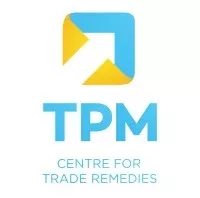In cases where there is steep decline in price of imports, resulting in high import volumes which adversely effect the Indian industry. selection of an appropriate trade remedial measure to counter the situation is imperative. Since anti-dumping and anti-subsidy laws require an investigation period of at least one year, it allows dumping and injury that occurred in a short duration to be masked by the higher prices of earlier period, thereby rendering the remedy ineffective. Safeguard measures in the form of quantitative restrictions may lead to delays, since interim measures cannot be imposed under the law. While safeguard duty may be appropriate, as it is an emergency measure and can administer relief expeditiously, it impacts imports from all countries, irrespective of price behaviour or volume.
A number of macro-economic global factors such as change in freight costs, RussiaUkraine conflict and sudden collapse of consumption have led to severe price decline for a number of products in a short duration. This has caused significant price competition in the market. Various products have faced decline in prices, in a range as low as 10% to as high as 80%, in a very short duration. Such declines have quite often occurred without any decline, or without proportionate decline in prices of principal raw materials. For example, prices of Para Nitro Toluene (PNT) have declined by over 80% from USD 2,300 per MT in June 2022 to USD 450 per MT in March 2023, as a result of global collapse in demand. Similarly, the prices of glass fibre have declined by 40 to 50%, with prices of certain types of Glass Fibres declining from USD 1,418 per MT in April 2022, to USD 761 per MT in March 2023. In the recent period, a large number of products have suffered such collapse of import prices, which has resulted in a sudden and steep increase in import volumes; or reduction in the prices in the market. In such a scenario, the Indian industry may seek trade remedial measures, to address the deteriorating market conditions. However, it is imperative that the appropriate measure be selected with due care, to ensure effectiveness of the remedy.
Challenges in invocation of Anti-dumping and Anti-subsidy measures
Since anti-dumping duty addresses the situation of dumping which causes injury to a domestic industry, it is possible that a steep decline in prices might be a result of dumping of products in India. However, India has introduced a legal provision concerning selection of investigation period, which emphasizes that the investigation period should normally be of twelve months. The authorities can only consider an investigation period of less than twelve months, where there is adequate justification as to why twelve months could not be considered as a reasonable investigation period. In such a situation, steep decline in profitability due to increased competition from low-priced imports, and consequent decline in performance, may not be seen as sufficient justification. At the same time, consideration of twelve months as the investigation period may not result in a situation which merits imposition of anti-dumping duty, since a longer period may show that the industry was performing well in the beginning of the investigation period, while showing heavy injury towards the end of the investigation period. Further, higher prices at the beginning of the investigation period may mask the severity of dumping during the later part of the investigation period.
It is interesting to note that this situation is well addressed under by other jurisdictions. For instance, under the anti-dumping law, if there is a significant difference in the prices of the product with reference to time period, customer or region, the investigating authorities may determine dumping margin for foreign producers by considering a weighted average normal value and comparing the same with export price of individual import transactions. This provision has been widely understood to imply a resort to zeroing for un-dumped imports in certain jurisdictions. However, India has not applied this provision so far.
Similarly, use of anti-subsidy law also involves with almost the same problem as the anti-dumping law, as the requirement for fixation of an investigation period is similar to that under the anti-dumping law.
Absence of Interim Relief in Safeguard measures in form of Quantitative Restrictions
Imposition of safeguard measures in the form of Quantitative Restrictions may also not be an effective remedy since the law does not contain a provision for imposition of interim measures, and the total time period allowed for completion of investigation is eight months. In effect, completion of investigation invariably takes more than six months, plus additional time required pre-investigation for collection of information and filing an application as well as post-investigation for consideration and implementation of recommendations. In a situation of emergency and sudden collapse of market prices, the significant time expended may imply a delay in administering the remedy that the industry cannot afford.
Use of Safeguard measures in the form of duty – Advantages and Concerns
By contrast, safeguard measures in the form of duty are meant for addressing adverse business situations arising out of sudden and unknown market developments. Sudden collapse of demand, leading to a steep decline in prices and consequent surge in imports is, in fact, well addressed under the safeguard law. Further, it is a well-established legal position that the investigating authorities are allowed to impose safeguard duty immediately after initiation and even without waiting for a notice period.
However, safeguard duty is an emergency measure and is supposed to be used sparingly. Further, even when injury to an industry might be caused due to imports from one or few countries, safeguard measures are applied across all countries, which may be a concern. In fact, South Korea has recently notified the WTO Council for Trade in Goods of the Proposed Suspension of Concessions and other Obligations seeking compensation against the safeguard measure in the form of quantitative restrictions imposed by India on imports of Isopropyl Alcohol. This compensation has been sought by South Korea despite the fact that there is likely to be no material adverse effect of the measure on South Korea. While the average imports from South Korea during the investigation period were 21,000 MT, it was allotted a quota of 24,000 MT under the measures. Thus, South Korea has received a higher quota than what it had exported in the past period. Despite the same, South Korea has raised a request for compensation. Such issues may arise in case of imposition of safeguard duty as well, since the duty would be levied across imports from all countries, irrespective of the volume and price of imports from individual countries.
Possible solutions
Nevertheless, despite the stringent requirements for use of safeguard duties, perhaps it is the only remedy available to the industry to address such situations of exigency arising out of collapse of markets, because of unforeseen global developments. Additionally, India should amend its law to allow consideration of investigation period of upto six months, in anti-dumping and anti-subsidy investigations. Further, it is important that India recognises and applies the three methods of comparison between normal value and export price provided under the law. This would allow the industry an alternative avenue to seek remedy, without also targeting imports from countries that may not be having an adverse impact.
The content of this article is intended to provide a general guide to the subject matter. Specialist advice should be sought about your specific circumstances.

